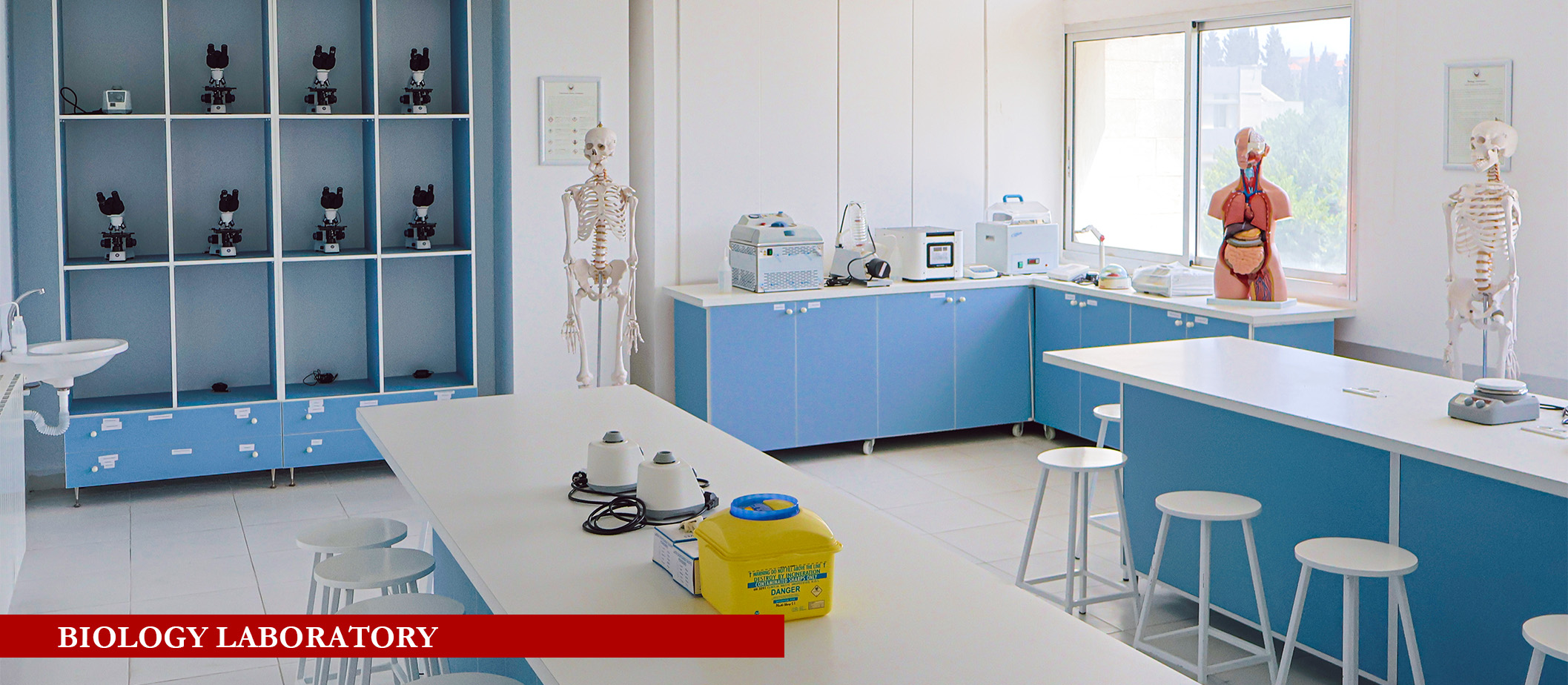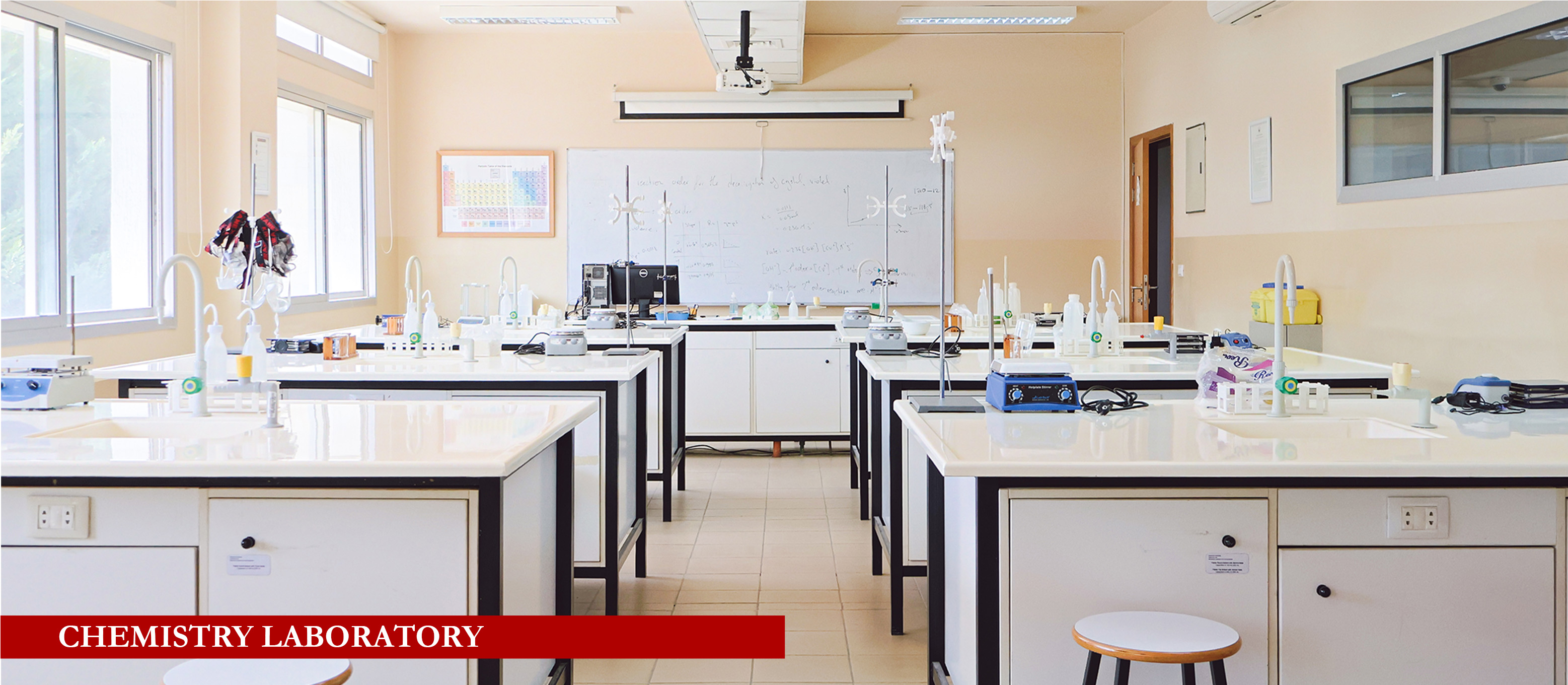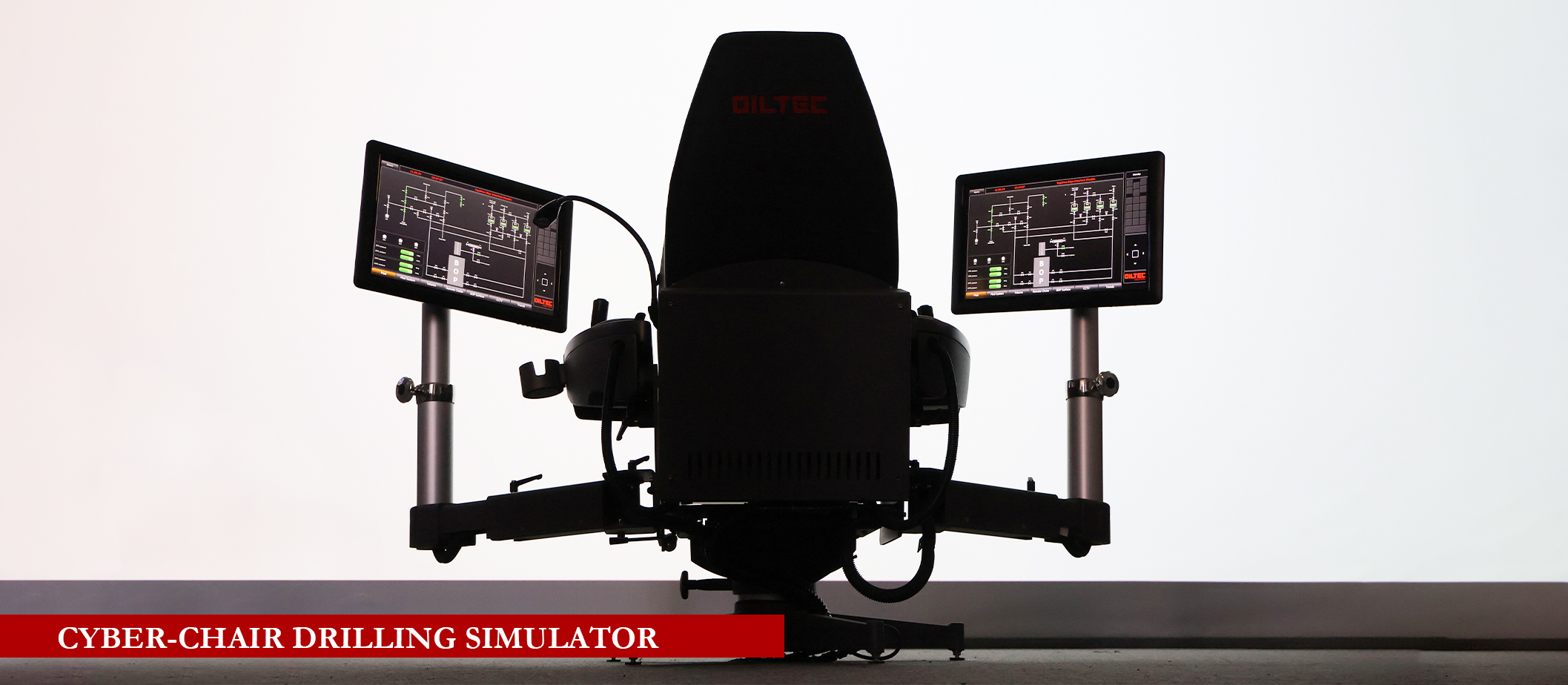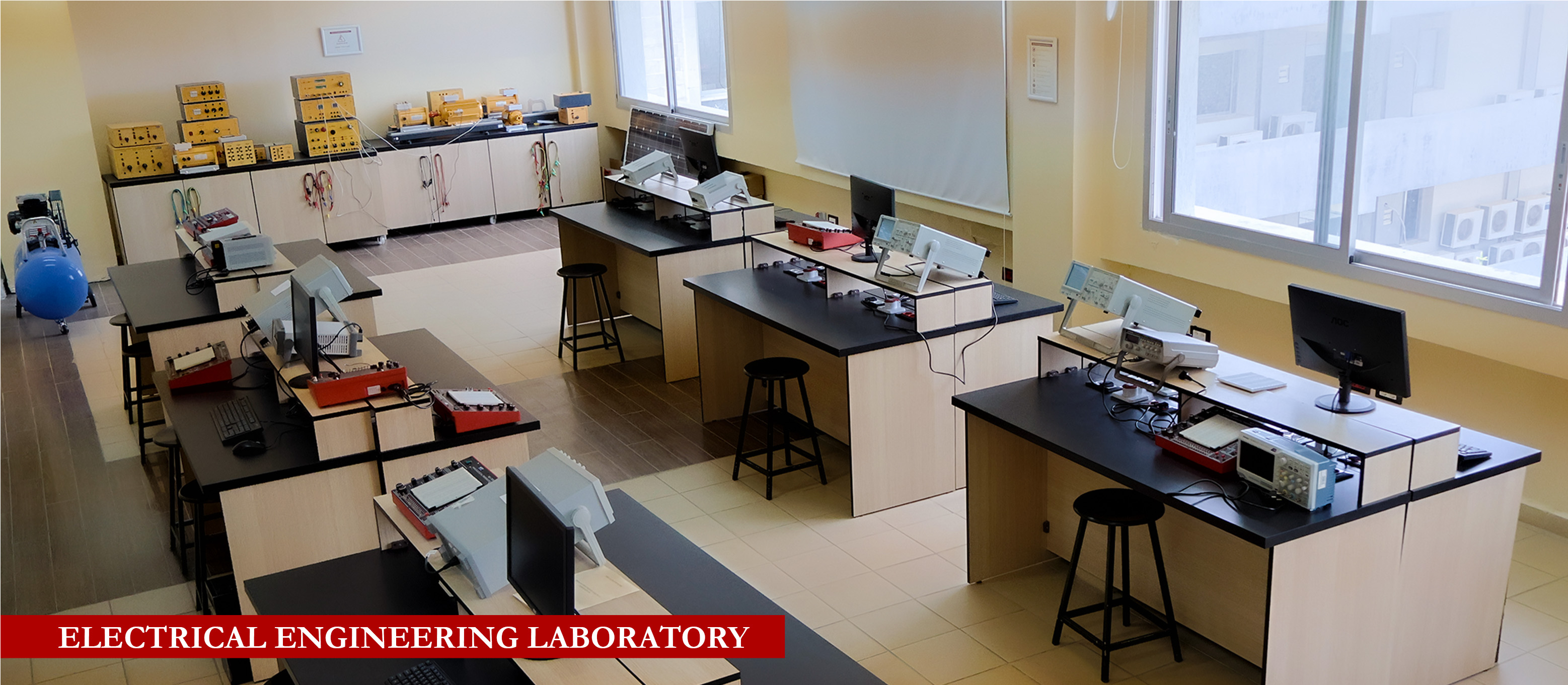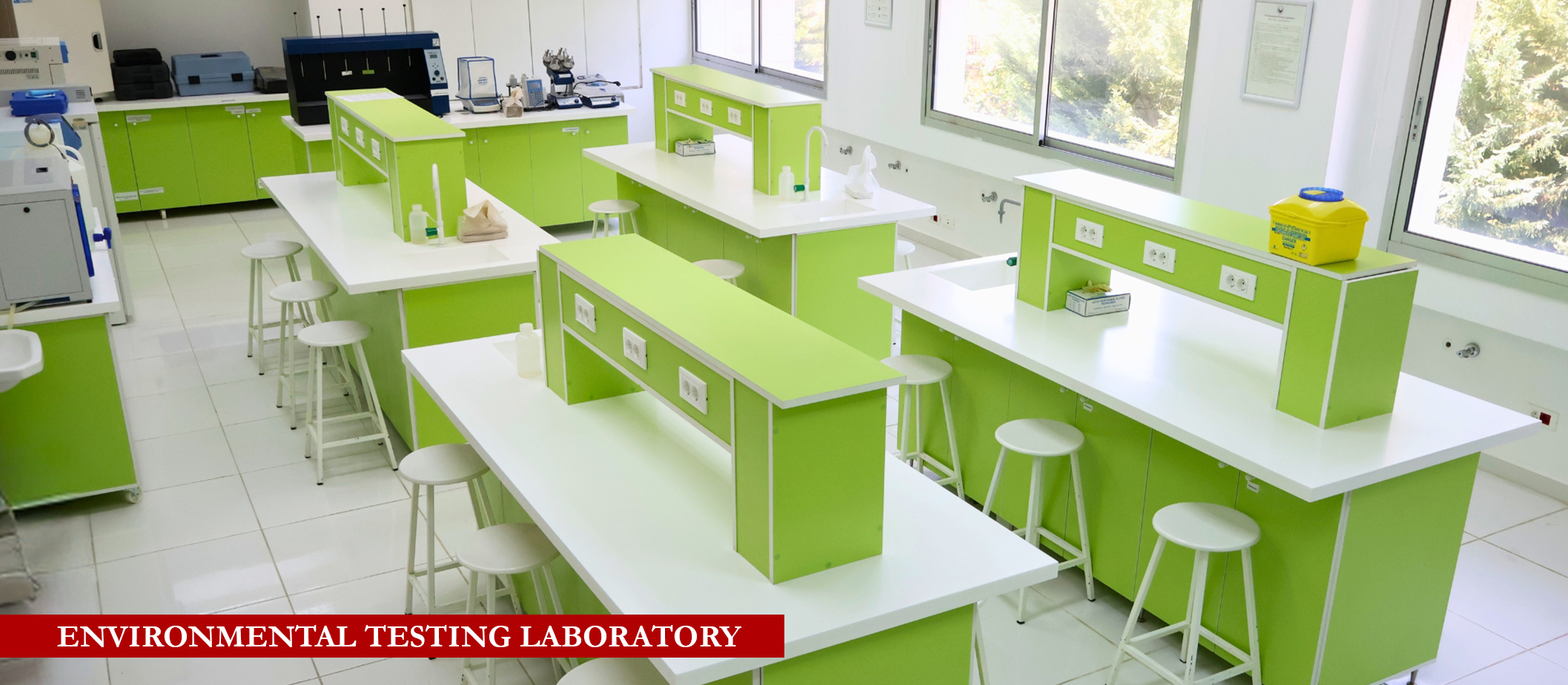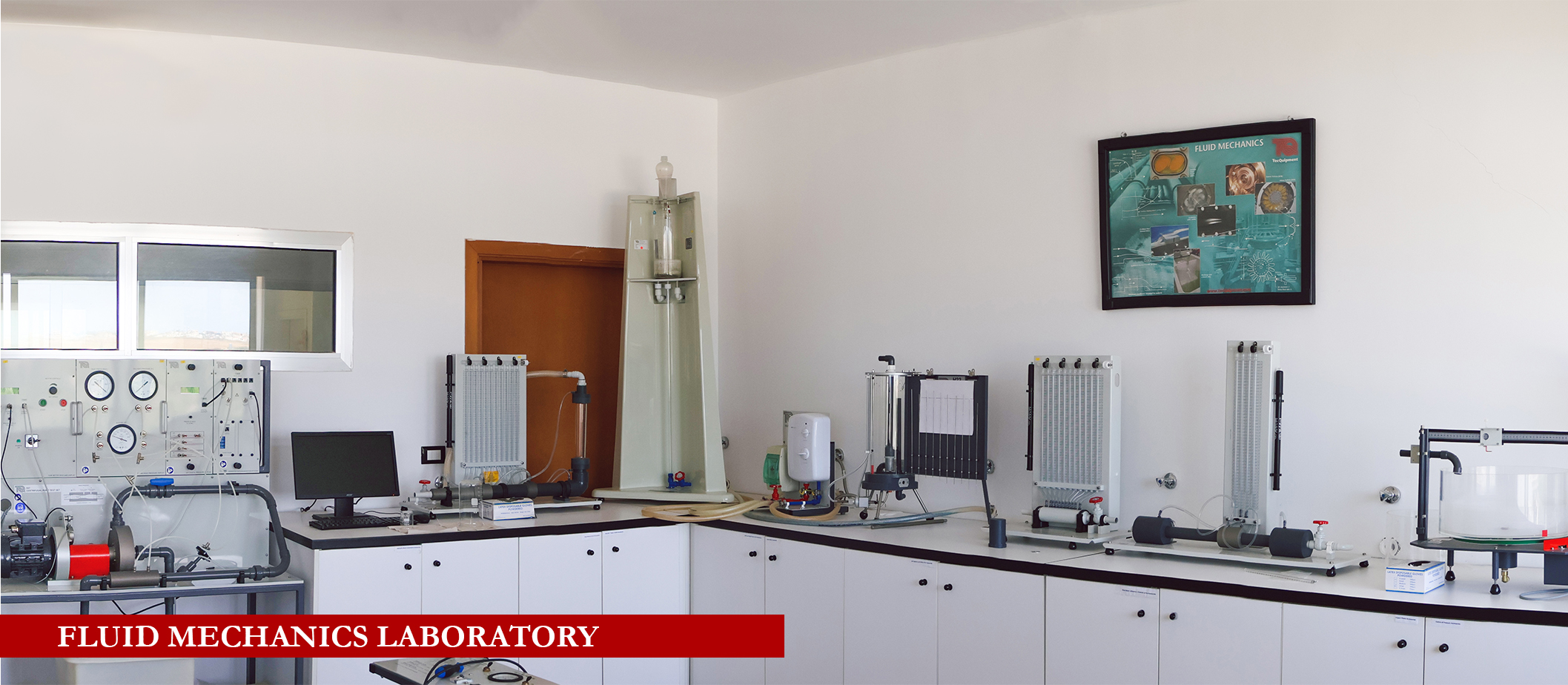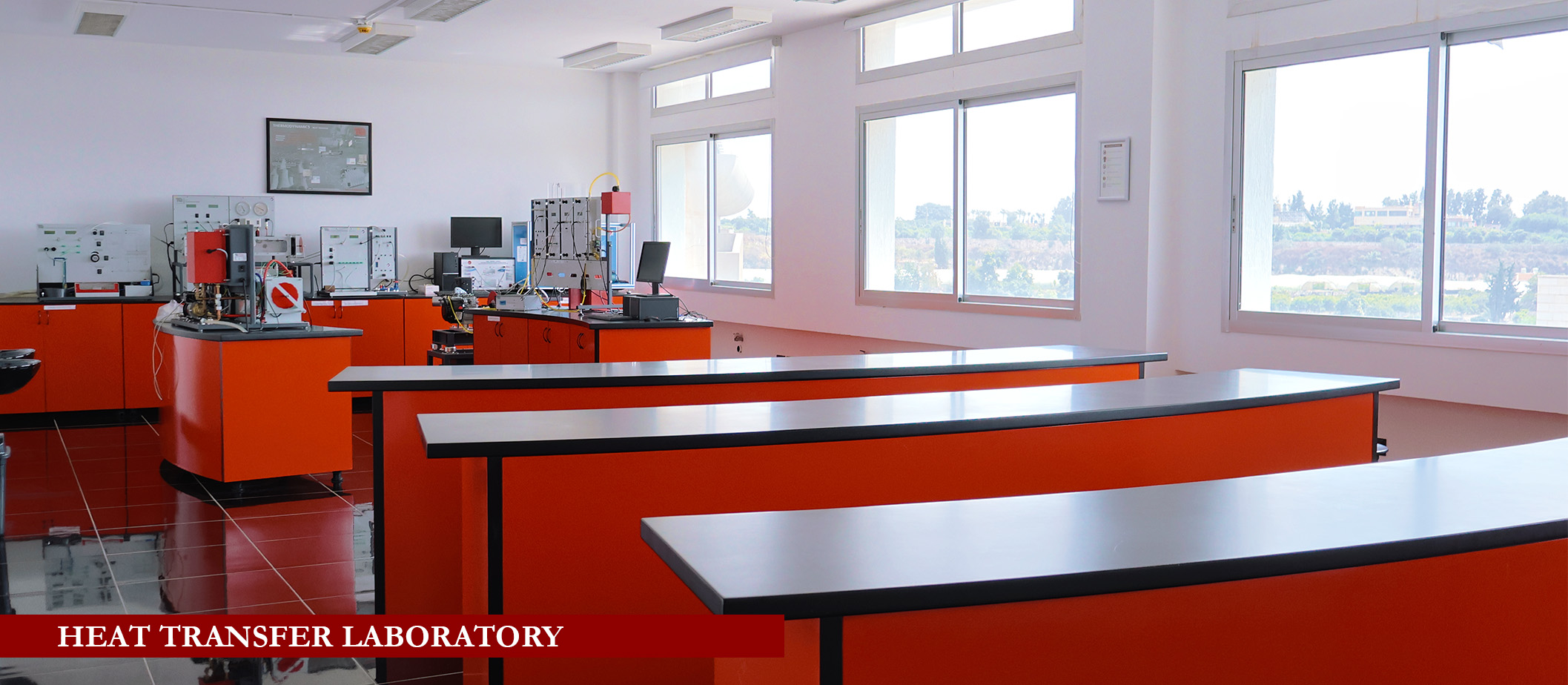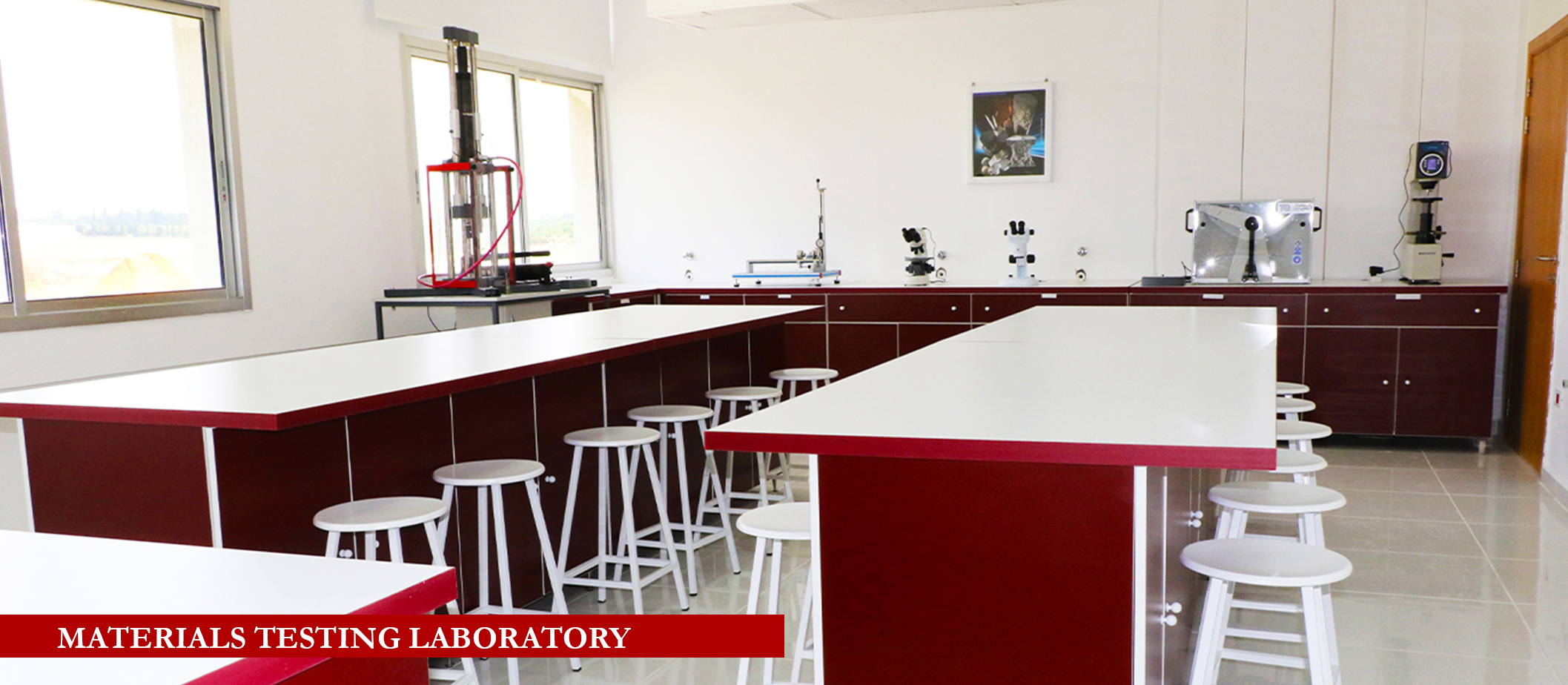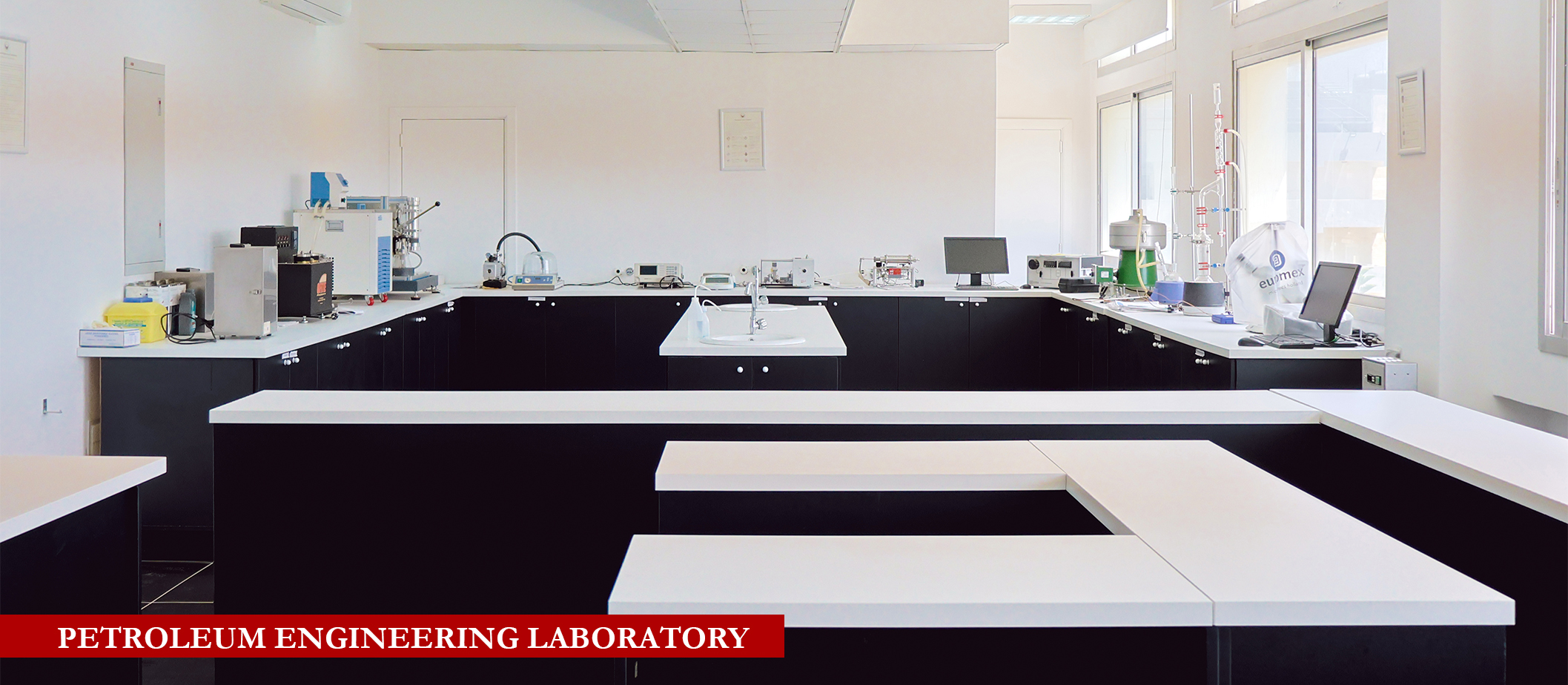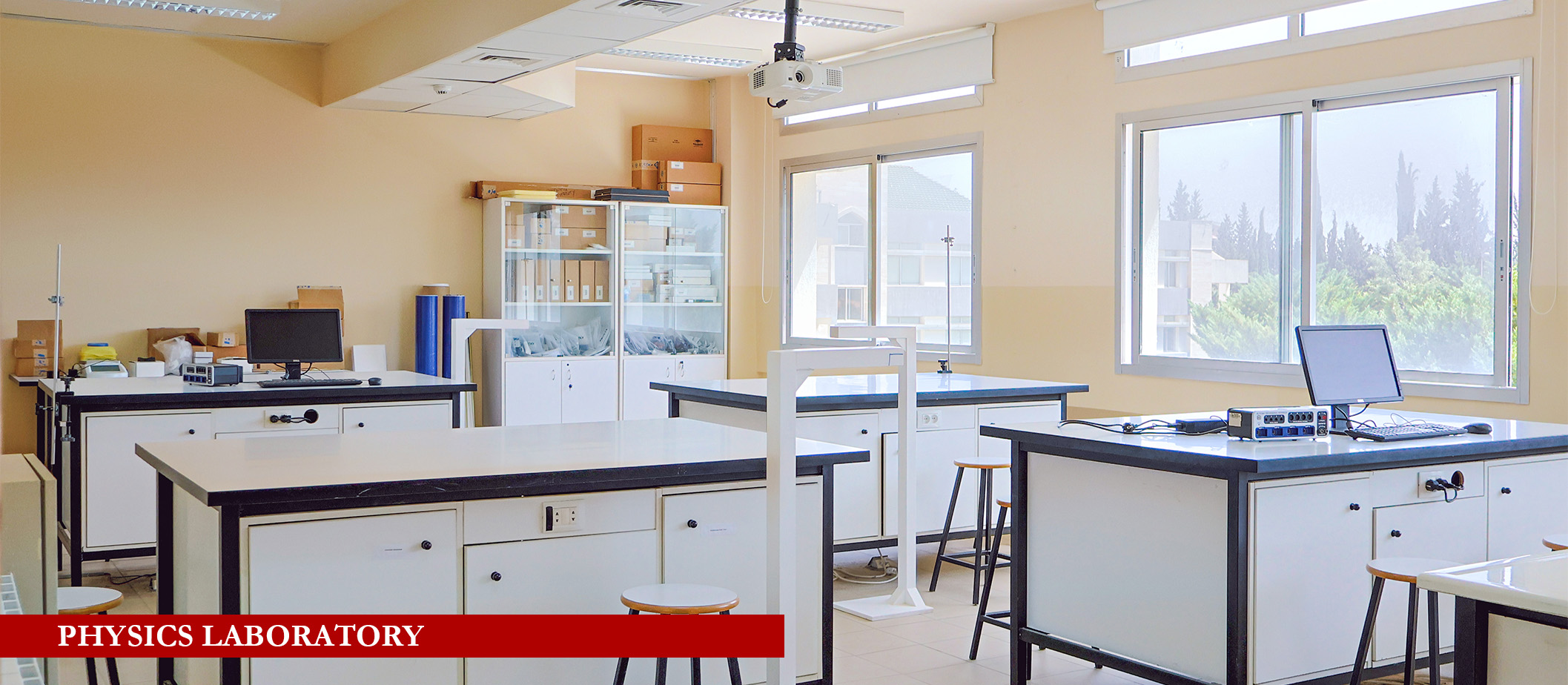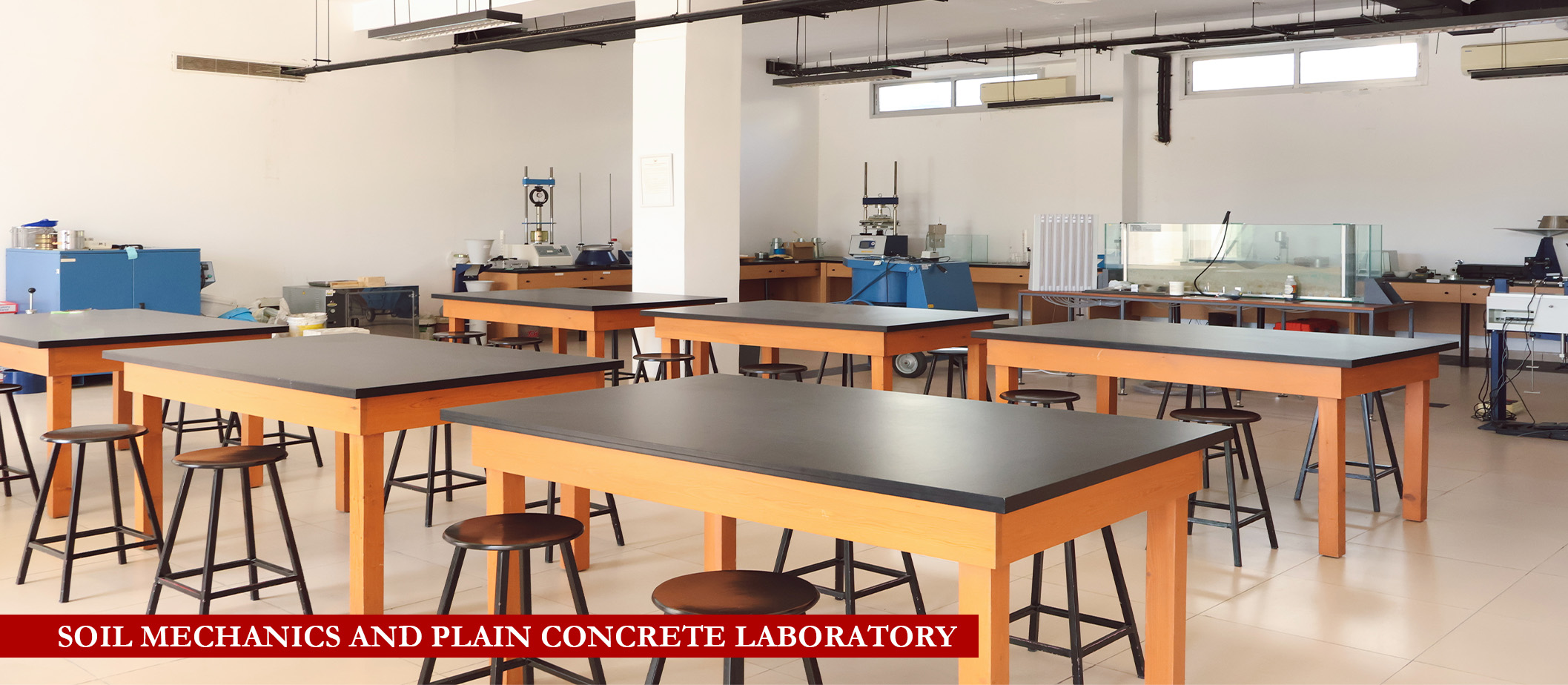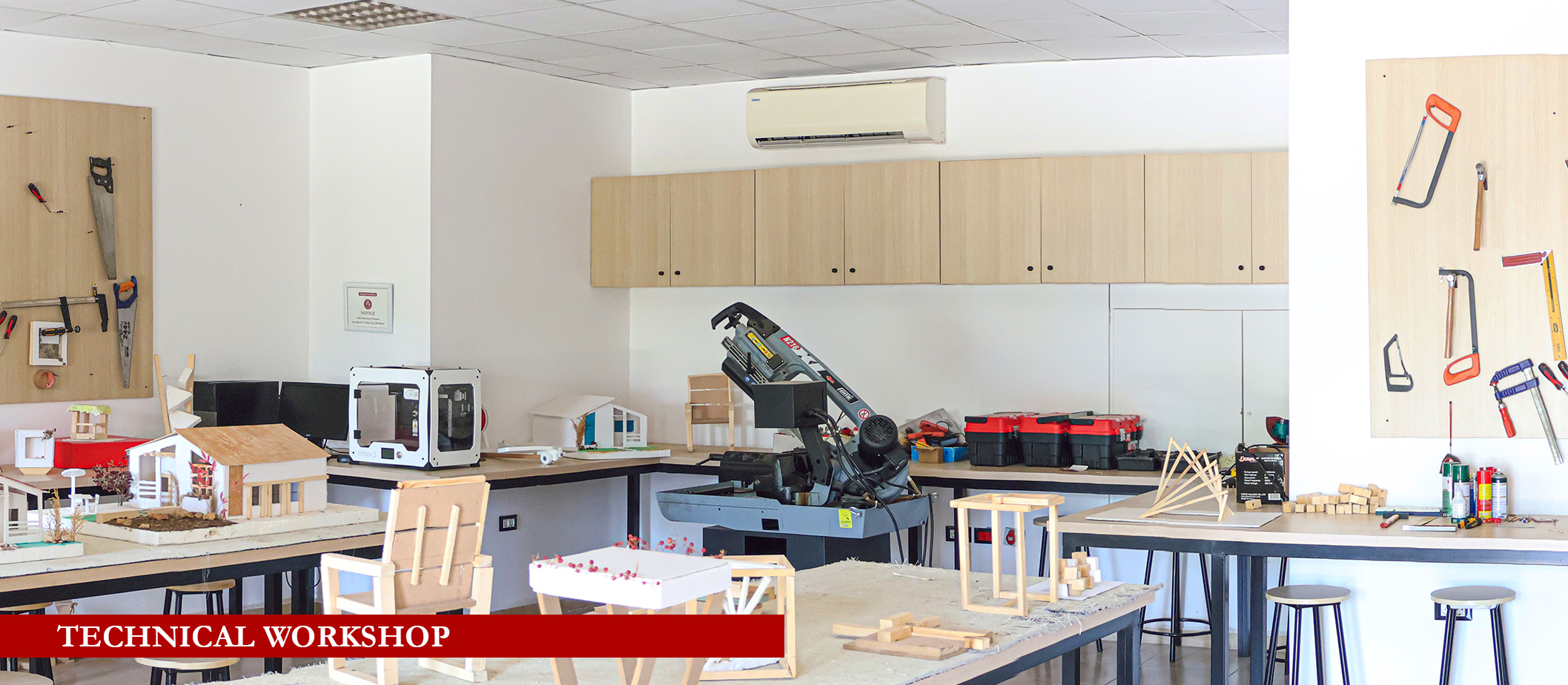- District of Zahrani, Lebanon
- +961 7 420 720
- info@pu.edu.lb
Laboratories and Workshops
The laboratories and workshops at Phoenicia University (PU) are an integral part of the teaching and learning process. PU students must attain practical, hands-on experience on relevant technologies to complement the curriculum and to better prepare themselves for an increasingly tech-driven world. PU houses thirteen modern and well-equipped laboratories designed for scientific experiments, research, and practical training. These laboratories meet the standards of up-to-date technological requirements. They offer modern amenities such as whiteboards, computer stations with internet access, and high-definition LCD projectors.
Moreover, laboratories at PU prioritize environmental and occupational health and safety standards, ensuring compliance with international regulations. These measures include adequate ventilation and air-conditioning systems, access to first aid kits, fire extinguishers, first aid kits, personal protective equipment (PPE), designated boxes for sharp objects, emergency eye wash stations and showers, and robust security systems.
· Biology Laboratory is well-equipped with a variety of tools that facilitate a comprehensive education in biology, and develop skills as scientific reasoning and problem solving across various disciplines within the field. Notably, the human torso and the skeletal system model enhance students’ understanding of general anatomy and human body. The blood typing kit allows them to identify an individual's blood type, while the light microscope enables visualization of different histological microscopic slides. In addition, the laboratory is equipped with dissection kits, offering students the opportunity to dissect animals or specific organs, further enhancing their practical learning experience.
Location: Block B, Room 304
· Chemistry Laboratory aids in transferring the materials students learn in class to real work practice. It is equipped with high-tech appliances to facilitate students’ practical course work. The experiments are designed to acquaint students with important laboratory techniques and to encourage analytical thinking through the application of analytical, quantitative, organic and inorganic chemistry experiments.
Location: Block B, Room 212
· Cyber-Chair Drilling Simulator is the first of its kind in the region in terms of installations and technological advancements Such innovative system provides an advanced solution integrating topside drilling machinery training with realistic downhole scenarios through highly immersive 3D visualization. The simulator responds to crew input just as they would experience on an actual rig, providing a valuable training tool. This simulation-based training provides operators with a safe risk-free virtual environment to practice and acquire essential skills, replicating real-world conditions and scenarios. It represents a safe and risk-free virtual environment for skill development.
Location: Auditorium, Simulator Room
· Electrical Engineering Laboratory is a unique facility housing twelve stations that are fully equipped with electrical outlets and essential engineering instruments, including oscilloscopes, function generators, voltmeters, multimeters, and communication kits. Moreover, the laboratory offers PU students the opportunity to construct and measure electrical circuits, providing valuable hands-on experience. In addition, it is equipped with electrical power machines designed for testing and experimenting using direct and alternative current machines. To enhance learning, five computer stations are available for students to engage in virtual simulations and circuit design activities within the electric field using relevant software.
Location: Block B, Room 312
· Environmental Testing Laboratory helps in testing and analyzing environmental samples. The laboratory has a wide range of standard equipment for carrying out environmental analysis, including water analysis, wastewater treatment and water quality parameters. Other equipment such as sampling devices, quality analysis of water and wastewater devices, and UV-visible spectrophotometers are also available, in addition to portable environmental equipment that aid in conducting experiments off campus.
Location: Block B, Room 209
· Fluid Mechanics Laboratory is equipped with high-tech instruments, enabling students to conduct experiments that demonstrate essential fluid mechanics principles. For example, the impact of a jet is examined to study the forces generated when a water jet strikes a flat or curved surface. Additionally, students can investigate friction losses in piping systems, study Venturi and Bernoulli's theorem using a Venturi meter, observe fluid flow in an open channel with a 2.5-meter flow channel, and visualize and study free and forced vortices phenomena using the vortex apparatus.
Location: Block B, Room 303
· Heat Transfer Laboratory is fully equipped to conduct various experiments showcasing the fundamental modes of heat transfer, such as conduction and radiation. The laboratory houses a heat exchanger service module for the in-depth analysis of different types of heat exchangers. Additionally, the laboratory features an air conditioning training unit, providing students with the opportunity to learn how to use psychometric and pressure enthalpy charts. Besides, it offers also a versatile engine test bed and instrumentation for comprehensive investigations into the fundamental features of internal combustion engines.
Location: Block B, Room 210
· Materials Testing Laboratory is focused on refining experimental techniques to enhance the learning experience with new materials, demonstrating how a material's history can influence its structure. It offers a platform for conducting experiments that illustrate the principles of metals and alloys such as aluminum, steel, brass, and copper. This laboratory is equipped with the necessary equipment to perform tests like hardness, tensile strength, and energy absorption on specimens. The universal testing machine (UTM), Rockwell advanced hardness, and impact of charpy are among the commonly used equipment in this laboratory, providing valuable insights into material properties and behavior.
Location: Block B, Room 201
· Petroleum Engineering Laboratory fosters active learning through hands-on experiments focused on the properties of petroleum fluid and reservoir rock. It features essential equipment such as the centrifuge extractor for determining bitumen content in paving mixtures, the dean stark for defining water saturation in core samples through warm solvent extraction, and an electrical properties system that enables brine resistivity determination in core samples. This system calculates key parameters like resistivity index, formation factor, saturation exponent, and tortuosity. Moreover, the laboratory is equipped with a gas permeameter to identify gas permeability at steady state, ensuring a constant pressure and flow through different rock samples. Additionally, a viscoball viscometer is available to measure the viscosity of transparent Newtonian liquids, contributing to a comprehensive learning experience.
Location: Block B, Room 301
· Physics Laboratory helps students in mastering basic physics concepts and exposing them to a range of experimental processes. The laboratory is equipped with computer stations featuring probes and sensors for automated data assortment and analysis through universal interfaces, enabling students to conduct a total of seventy-eight experiments covering all the laws and theories studied in physics. These experiments encompass fundamental principles such as Newton’s second law of motion, reflection and refraction, Coulomb’s law, and Kirchhoff’s law.
Location: Block B, Room 305
· Soil Mechanics and Plain Concrete Laboratory is equipped with state-of-the-art machinery, including the fully automated triaxial machine and the Los Angeles Abrasion machine. This laboratory offers students a hands-on experience in examining the physical properties of soil. Moreover, students have the opportunity to create samples and conduct a range of tests, including Atterberg's limits, compaction, consolidation, permeability, compression, and direct shear tests. This experience enhances their understanding of the complexities of soil as a material and teaches them about necessary precautions and limitations associated with using different types of soils and their respective tests. Additionally, the laboratory allows for tests and analysis of construction materials such as concrete, aggregates, and asphalt, all conducted in compliance with ASTM standards.
Location: Block D, Ground Floor
· Surveying Laboratory is equipped with mobile stations and essential tools utilized by students throughout their surveying course. It is designed to acquaint students with various equipment, methods, and calculations used in land surveying, particularly focusing on distance, level, and angle measurements crucial for engineering applications. Through diverse field exercises, students gain practical experience in operating different types of instruments, interpreting survey data, and recording information from various surveys and survey drawings. Moreover, students are provided with set of tools, including hand-held laser distance meters, auto level packages, and digital theodolites. Supplementary equipment such as tripods, level rods, tape measures, and chaining pins are also available for laboratory usage.
Location: Block D, Ground Floor
· Technical Workshop aids in bridging theory learned in the classroom to practice through the presence of advanced metal and wood machines. The workshop is equipped with high-tech machines and tools, including a lathe machine, wood band saw, metal band saw, bending machine, and various hand tools, to meet users' diverse expectations. It allows students to translate architectural designs or construction concepts into reality, whether through scale models or full-scale constructions. The design of the workshop strictly adheres to safety standards and regulations, ensuring the well-being of all occupants. Moreover, a dedicated technician is available on-site to assist students with their projects and offer guided instructions on the proper use of each machine.
Location: Block D, Ground Floor
For further inquiries, contact email: LAF@pu.edu.lb or by extension 1008.
Colleges
Contact info
Main Campus
District of Zahrani
South Lebanon
Tel.: +961 7 420 720
E-mail: info@pu.edu.lb
